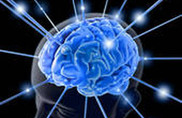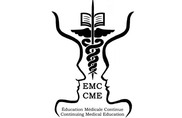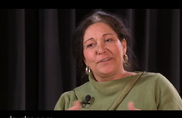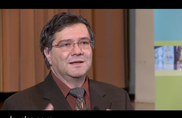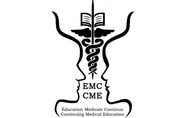Is electric shock therapy still used and, if so, what are the risks associated with it?
It is still used, but rarely for psychotic disorders. However, it tends to be more effective for people with psychotic depression. Very severe depression, which is called melancholia, can be associated with psychotic symptoms. So, if one is very sad, and extremely discouraged, he or she can also have the impression that their body has been transformed, that they have lost everything in life, and they enter into this very negative mode. It’s been shown for a fact that one of the best treatments for these major depressive episodes with melancholia is ECT.
It was discovered in 1936 by an Italian psychiatrist by the name of Seletti and, since then, has been used extensively in different disorders. Its main indication is still major depression with psychotic symptoms. There is also psycho-surgery and lobotomy, which are prohibitive treatments, but still used in psychiatry in very, very selected situations. For example, it’s been shown that some specific brain surgery could be helpful if someone has very severe or obsessive symptoms.
In my practice, I primarily see young people with psychotic disorders, not psychotic depression. I can't remember the last time I used ECT.
-Ridha Joober, MD, PhD, Mini-Psych School 2009
For a person who suffers from schizophrenia but responds well to treatment, what are the implications in using cannabis and alcohol?
I believe that a moderate amount of alcohol is not a huge problem. One has to see it in context. If a person is doing well and wants to socialize, we can't say “act normal, but don't spend time with your friends when they're drinking”. Moderation is the key word here.
Cannabis is slightly different. We would never advise anyone to smoke cannabis after they've had a psychotic disorder. However, young people still do. We encourage them to have enough confidence in their clinician to tell him/her whenever they engage in such activities. We've seen patients who significantly reduce their substance use and do relatively well. When it comes to people who continue to use large amounts, there's a problem. Also, there's a difference between cannabis and alcohol in terms of its relationship to psychoses. Speed, ecstasy, acid, and cocaine are absolutely forbidden!
-Ashok Malla, MD, Mini-Psych School 2006
How can you tell if the medications aren’t working?
I think the first criterion is: Does the person seem a little bit happier? Do they seem to be suffering less? Signs and symptoms don’t give a diagnosis. What gives the diagnosis really is the degree of pain and suffering and impairment of functioning. So, my major criterion for remission is this: Are you happier? Are you going out more? Are you meeting your friends more? Are you back to school? Are you realizing your dreams?
Now, sometimes I see patients taking the medication, still having hallucinations and probably some delusions, but functioning much better, going back to school, doing work, etc. That’s a very important point. We know that better functioning is correlated with fewer symptoms, so we watch symptoms also. We are very satisfied when hallucinations and delusions are less present and people go back to what we call “the normal reality”.
-Ridha Joober, MD, PhD, Mini-Psych School 2009
What are the new forms of psychotherapy for psychotic patients?
It’s a form of what is known as cognitive behavioural therapy or CBT. One of the things about the more recent form of psychotherapy was literally developed on the basis of learning theory. It takes the principle of learning theory and asks: How can we take what we know about the way the people learn and how that learning changes their behaviour and then formulate that in a psychotherapeutic context. What you do in CBT for psychosis is you try and get patients to identify what their triggers are for their hallucinations or their delusions, and then try to teach them different ways of dealing with those delusions. Identifying the triggers is a major advantage.
There is also psychoeducation, which is informing the patient and family what the illness is all about. This does wonders for the whole family. For example, if you tell a parent that the reason why his or her child is locked up in his or her room and does not want to come out is because he or she is experiencing some kind of delusion, they will be less likely to criticize the child and more likely to try and go in and talk to them and support them.
-Joseph Rochford, PhD, 2009
Can people with schizophrenia stop taking medication if they are feeling better?
When people get better, the first they think is often “I will stop the medication. Don’t tell me that this little pill is giving me my sanity because basically I know what I am now, I am completely aware about my reality, and what happened to me is something that is bizarre and it’s in the past, it’s gone.” Unfortunately, when people stop the medication, all that stuff starts coming back for the same reasons that it started in the first place.
I’m not saying that everybody will relapse but most people do. In only 10% of the cases, we will stop the medication and the symptoms won't come back. In this case, we reduce the medication very slowly and watch the symptoms for what we call “early warning signs”: reduced sleep, more anxiety, etc. Every patient has his own early warning signs; we identify them together with the patient, and closely monitor (and self-monitor) for them.
-Ridha Joober, MD, PhD, Mini-Psych School 2009
What effect might MTV have on someone who is psychotic?
We can't protect our young people from being bombarded with multiple images. It's something we're going to have to accept. I hope we can educate the school system. I know that some jurisdictions have done an excellent job of including mental health literacy as part of their education curriculum. That is not a direct answer to your question, but I don't think we have, or ever will have, control over what happens on TV.
-Ashok Malla, MD, Mini-Psych School 2006
Can an individual with psychotic tendencies get better?
Yes. In fact, most of the antipsychotic medications that we have, allow the patient either not to have their delusions or hallucinations, or at least to ignore them. In terms of cure, they will not get rid of the disease necessarily, but allow people to deal with it in a way that is more comforting to them.
-Joseph Rochford, PhD, Mini-Psych 2009
Are nutrition and exercise good complementary treatments for schizophrenia?
When I took my medical training, we were told that these were not real treatments. More recently, however, there has been some evidence that options such as a combination of Omega 3 and Vitamin E might offer "extra protection"—although they're not treatments on their own. There's a trial going on right now in Israel, where patients are taking combinations of Omega 3 and Vitamin E, in addition to regular medication. They may find it will reduce the amount of medication required and offer additional protection to the brain. We'll have to wait for the results and see. As far as nutrition is concerned, in our program, we teach young people how to prepare their food and be diligent about their food choices. As for exercise, it's important, especially since weight gain is such a huge problem. And everyone knows if you want to lift your mood, you should exercise! That's what we teach our patients.
If a gene is detected that is responsible for psychiatric diseases, how can we prevent it from being expressed?
I personally believe that no one particular gene is responsible for schizophrenia. Many, many genes play a role. We do not currently know how many genes are involved. I don't think you can prevent schizophrenia from a genetic point of view, although anything is possible. However, by understanding the genetic basis of schizophrenia, we learn how this disease develops and if there are better ways to intervene in this process.
-Ridha Joober, MD, PhD, Mini-Psych School 2006
What are the best ways to help a person cope with their symptoms?
I think that medication is a very effective way to help people control the symptoms because, in about 80% of cases, when people take their medication, the symptoms will completely disappear, or they will disappear up to about 90%. Sometimes, there are a bit of symptoms or hallucinations or delusions that remain. Thus, cognitive behaviour therapy is also used because it has been shown to be effective in helping people cope with their symptoms. What is also important is giving people the opportunity to detach themselves from their delusions and to come to understand them as part of a psychotic experience they have gone through rather than as the actual “truth”.
-Ridha Joober, MD, PhD, Mini-Psych School 2009






